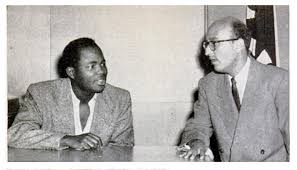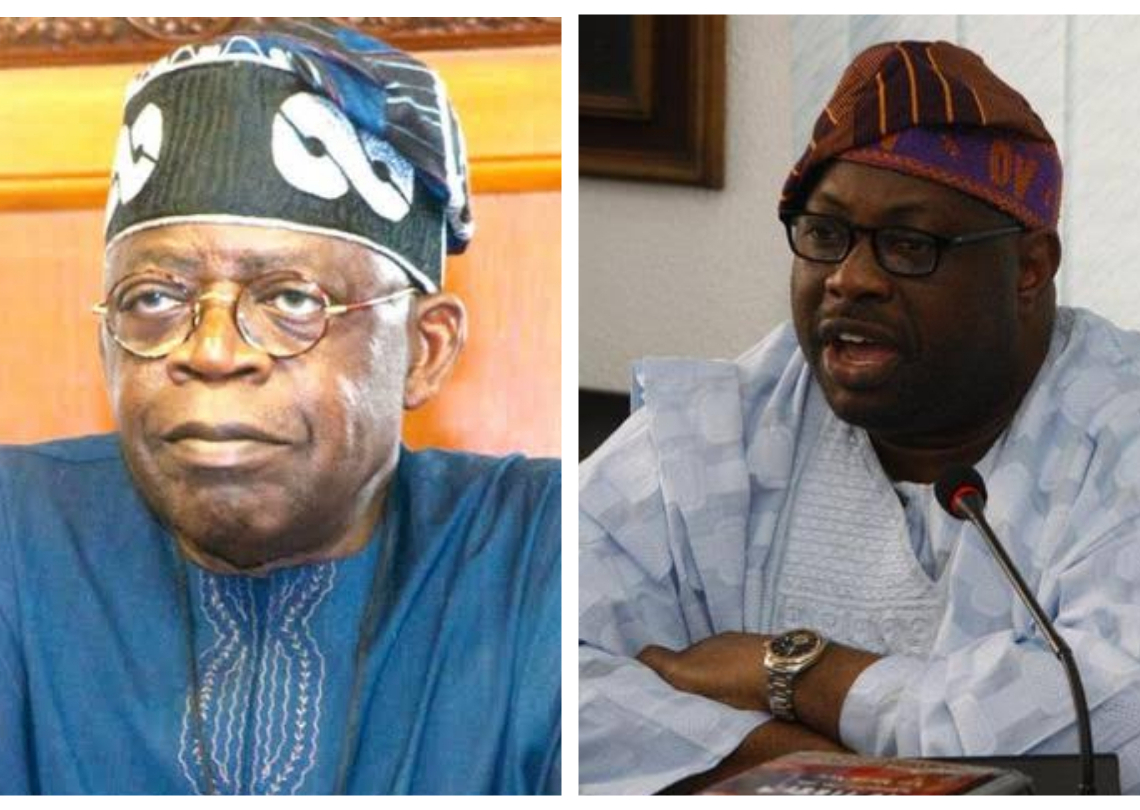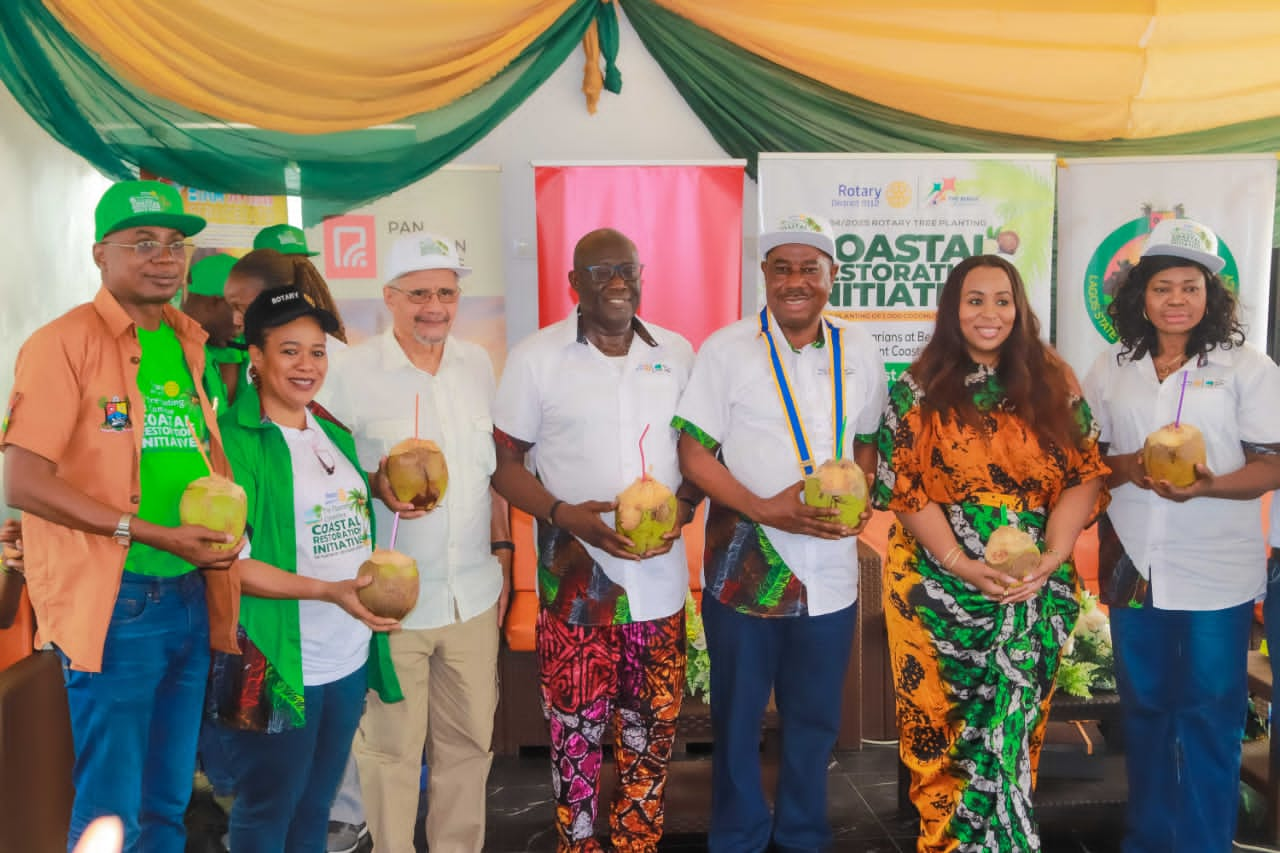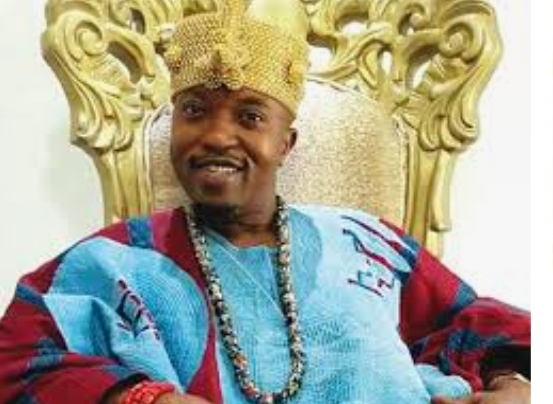By Barr. Femi Kehinde
In a moment of psychological terror, anguish and angst, Sophocles, in Oedipus Rex, at a point of deep exasperation, said- “call no man happy, until he is dead!” Life did terrible things to Oedipus. He had unknowingly murdered his father and married his mother.
Chance rules our lives and the future certainly is all unknown. In Yoruba pantheon-“Alejo l’owo”- Money is a stranger, if it enters your hand, take good care of him like a lady fresh from puberty.
Moshood Adisa Olabisi Ajala, popularly known as Ajala the traveller in his hey days, wanted to capture the world but was eventually consumed by his passion.
He was born in 1934 in Ghana, into a Nigerian Polygamous home, of 30 Children and four wives. He was the 25th child of his father, who relocated back to Nigeria, when Olabisi was an infant. He had his secondary education, at the Baptist Academy, Lagos and the Ibadan, Boys High School, Ibadan.
In 1952, at the age of 18, Olabisi proceeded to America, to further his education. He was admitted to the university of Chicago, as a pre-medical student, whose dream, was to become a medical doctor and return to medical practice in Nigeria, to debunk and disparage the traditional medical practice as being fetish.
He was shortly thereafter, captured by a superlative dream, to become a traveller and perhaps, travel around the world. He abandoned the stethoscope, for a street life on the road. In 1952, he became an instant star, when he went on a lecture tour across the United States of America, with his bicycle and well donned in Yoruba Agbada outfit, with a matching cap to fit.
He travelled from Chicago and covered about 2, 280 miles in 28 days, ending in Los- Angeles. The success of this trip, encouraged him to explore the world further and he became a self appointed Nigeria’s cultural ambassador, to showcase Nigeria and educate Americans, about the prospects in Nigeria and that Africans, nay Nigerians most especially, do not walk about naked or covered in leaves and loin clothes.
The famous Olabisi Ajala was now emboldened to explore the world, aside the United States of America. Ajala visited about 87 countries, with a Scooter Vespa motorcycle in six years. He visited countries such as Israel, India, Australia, Iran, Russia, Ghana, Cyprus, Egypt and so on, where he met some of the greatest leaders in the world, such as Gamal Abdul Nasser of Egypt, Jawarhalar Nehru of India, Niki Khrushchev of the USSR, Mohammed Ressa Shah Pahlavi of Iran. He had movie relationship with Ronald Reagan, that later became president of America and visited Sir Abubakar Tafawa Balewa, the then Prime Minister of Nigeria and many more eminent people across the globe.

Ajala’s endeavour, exposed him to the world of movies. He featured in the movie- “White Witch Doctor”, produced by the 20th century fox motion picture, with a bumper payment of 300 Dollars per week. He played the role of “Ola”- a companion of “Loni”, a famous African hunter, played by Roberts Mitshun. In 1955, he signed a movie contract with the Eagle Lion’s studio of Hollywood. He had several television appearances in impeccable African traditional attires. He was attractive, handsome and charismatic and he became an instant attraction, to so many women. His marital exploits, features different women across the globe.
His first philandering exploit in 1953, was with a Chicago nurse, named Myrtle Basset. Ajala, after Basset’s pregnancy, refused to acknowledge paternity. Basset had no choice, but to file a paternity suit against Ajala, for denying being the father of their son. The lady nurse claimed that Ajala himself named the child Oladipupo and also signed his birth certificate.
Despite this paternity suit, Ajala held firmly to his ground, of denying paternity of the boy. He suggested a DNA test, which the lady initially refused, but later agreed to surrender the boy, for a DNA test. The lady’s change of mind, made Ajala to dissappear into thin air. The court nonetheless, ruled against him. The Court ordered Ajala to pay Ten dollars per week, for the upkeep of Oladipupo, also named Andre. Ajala never saw Oladipupo again until 1976, when he looked for Oladipupo in New York and discovered him- a budding pianist and musicologist.
They reunited, having told him, he was his father and that he was his first child and first son. He enocouraged Oladipupo to come to Nigeria and take part in the up coming cultural fiesta, named “Festac 1977.”

The year 1953 was like a festering sore, for Olabisi Ajala. He was arrested on the charges of forgery, grand theft and worthless cheque by the police. He pleaded not guilty, to the charges, but rather claimed he was also duped by an ex banker- Arnold Weigner. The court sentenced Ajala to one year jail term and immediate deportation after service of sentence.
The sentence was aggravated for the fact, that Ajala had abandoned his studies, at the Santa Monica Junior College and the student Visa had been invalidated, for lack of regular school attendance.
Olabisi Ajala refused deportation and protested to the immigration authorities in the United States and that he would be killed by his father, if he was departed back to Nigeria on the grounds of tribal execution.
To make good his protest against this deportation order, he climbed an 80- Foot radio tower, where he screamed that he would jump rather, to his death, than being deported.
He protested on the tower for about 24 hours, turning deaf ears, to the pleas of the immigration authority and passer bys. He eventually caved in to the pleas, by scaling down from the high tower and jumping down from the heights of about 15 Feet. He was lucky to have sustained a sprained back. After the tower episode, he embarked on a strike, which he termed a 30 day Ramadan fasting, that he had to observe, as a devoted Muslim. Despite all these protests and desperate efforts to stay in America, Ajala was flown to London, instead of Nigeria. He had earlier wished to be flown to Canada, but the Canadian immigration, did not approve his application.

In December, 1954, Ajala found his way back to America, with another wife- Hermine Aileen, who later divorced him on charges of being an adulterer and a philanderer, in August 1955. In December of that year, Ajala married another 19- year -old white London Radio T.V actress- Joan Simons. Ajala became a world renowned celebrity, who travelled round the world with a motor cycle scooter Vesper.
In 1972, the Nigerian music legendary, Chief Ebenezer Obey, celebrated Olabisi Ajala and his adventures, in his hit Album- “Board Members.”
Obey sang the praises of Olabisi Ajala in the album- “Ajala Travel all over the world (2ce), Ajala travel (2ce), Ajala travels all over the world, Alajala mi omo olola, Alaja lami oko Alhaja Shade, Alhaja los’obokun fun alajala, emi meje o, emi meje.”
The album sold millions of copies. Aside from Alhaja Sade, Ajala had wives and children scattered all over the globe. His Australian wife- Wajuan had for him Femi, Dante, Lisa and Sydney, who were then based in Australia. There were Taiwo and Kehinde in London, Mrs Toyin Ajala in England, Mrs Sherifat Ajala in Nigeria.
Ajala in his mid life, was an advertising and entertainment guru. He was a very notable publicist. He promoted the music of many Nigerian musicians, including Chief Sikiru Ayinde Barrister, with whom he later had a brawl. Ajala, as Ayinde’s music promoter, has helped Barrister, to organise media promotion and also played major roles in securing shows for Barrister. Ayinde Barrister, felt that Ajala was too exploitative, unbending on his numerous demands and bills. Ayinde Barrister, felt the only way he could extricate himself from Ajala’s numerous demands, was to wax an album, perhaps to disentangle himself, from Ajala’s strangle hold and he did wax a hit album and sang thus-
“Egbon kini Gbegede, Kini gbegede,
oni o gbe bukata wa
Ayinde mo gbo bukata re,
ola ogbe bukata wa
Ayinde mo gbo bukata re
Ema se bawon wi o
Fine bara
Decent bara ni”

Ajala felt highly embarrassed, insulted and defamed by the “fine bara” album and also saw it as a huge damage to his integrity. Fine Bara, suddenly became his nickname. The innuendo was striking and direct. Ajala had to go to court and sued Barrister for defamation. Chief MKO Abiola, Chief Ebenezer Obey, Alhaji Buari Oloto and M. Ola Kassim, had to intervene, to mitigate the crises from further degeneration and an armistice, was signed between the warring parties, as a cessation of hostility.
Ayinde was asked to produce another album in praise of the publicist, while Ajala was also asked to withdraw his defamation suit, as a settlement out of court. In the spirit of this understanding, Ayinde waxed another album, to sing Ajala’s praises, to control the damage, Oke-Agba Album, caused to Ajala’s intergrity. In this follow up album, Ayinde Barrister sang-
“Bisi Ebony mi … Ajala …
Advertisment pelu publicity
Ebony, eyin lee ni
Image making f’ awon up coming stars
Ebony Eyin lee nii
E’ ma P’ Ajani ni fine bara.”
Ayinde also had to play free for Ajala’s friend from London- Folly Taiwo.
Ajala, following this spirit of settlement, filed a notice of discontinuance in court and he withdrew his suit. Sooner thereafter, Ajala’s influence, popularity and fame began to wane. Olabisi Ajala could no longer sustain the life of opulence, showmanship and glamour.
He had no building, he could call his own and he had to relocate, to a rented apartment in a two storey building, on Adeniran Street, Bariga, Lagos. To get to Ajala’s dingy apartment, you need to climb two stairs of the top floor and you would be confronted with the way life had treated this globe trotter.
A passage leads to a 15 by 12 feet sitting room. A visibly disturbed visitor, on a visit to Ajala’s flat reported thus-
“Ajala’s sitting room was devoid of carpet, had a table of about five locally made iron chairs in a corner which also served as a dinning table, an old black and white televion set, seats uncomfortably in an ill-constructed shelf, the cushion on the sofa hurts the buttocks as it has become flat, the curtains on the window of the two bed room flat, showed sign of old age, it is indeed a story of penury”

Ajala suffered stroke and an irredeemable one indeed. It was a year long sickness in pain, agony and melancholy. Alhaja Sade, who then lived in Ikotun, a suburb of Lagos and his numerous children, scattered across the globe, could not save the situation, except Olaolu, who was then a teenager, then in Baptist Academy, Bariga, Lagos and Bolanle, who was also in secondary school, tendered him.
Ajala could not take adequate care of himself, because he had no money and the stroke became terribly worst and devastating, until he breathed his last.
The lesson learnt, is that when fortune and opportunities, smiles on you, it must be held with a hand of steel and never allowed to slip off. Ajala perhaps, returned the smile with an unwelcoming and uncaring mien, and thus, a life that ended tragically on the 2nd of February, 1999, at the general hospital Ikeja Lagos, as a result of paralysis from stroke at the age of 65 years.
Olabisi Ajala, having started a meaningful and robust life at the age of 18, it is still strange, mind buggling and befuddling that Olabisi Ajala did not leave behind a single house in his 65 years, and thus the exit of a life, that started in early prosperity at the age of 18 and ended in penury at 65.
Nonetheless, Ajala made his mark!
May the soul of Moshood Adisa Olabisi Ajala (the traveller), continually find peaceful repose with the Lord.
Hon. Barr. Femi Kehinde is a former Member, House of Representatives, National Assembly, Abuja, Representing Ayedire/Iwo/Ola-Oluwa Federal Constituency of Osun State, 1999-2003 &
Principal Partner
Femi Kehinde & Co (Solicitors)
Ibadan Office-
No 84, Iwo Road, Ibadan
Lagos Office – Plot A, Oluwalogbon Motors Building,
Obafemi Awolowo Way,
Ikeja, Lagos.
Abuja Office-
NO. 8, Suez Crescent, Ibrahim Abacha Estate,
Wuse Zone 4,
Abuja.


 News6 years ago
News6 years ago
 Featured6 years ago
Featured6 years ago
 Boss Picks6 years ago
Boss Picks6 years ago
 Headline6 years ago
Headline6 years ago
 Headline6 years ago
Headline6 years ago
 Headline6 years ago
Headline6 years ago
 Headline6 years ago
Headline6 years ago
 Headline6 years ago
Headline6 years ago


















